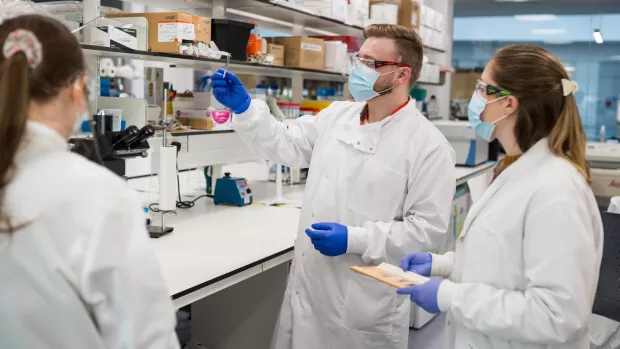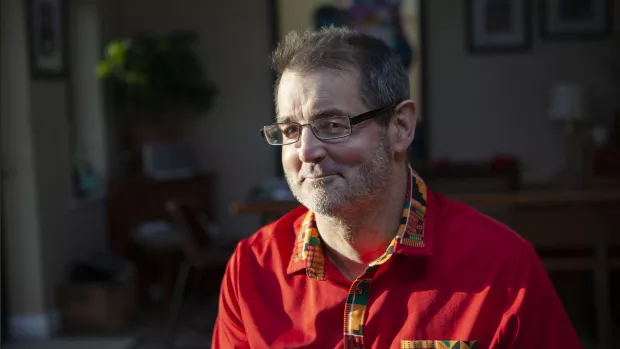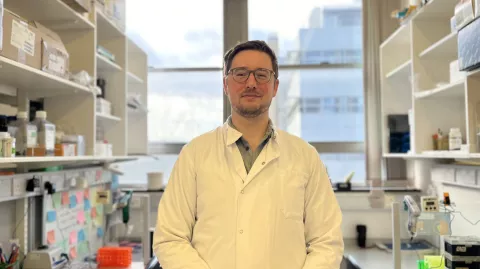
Small cells, big ideas: how one research project could inspire future findings
Dr Cory Willis is a researcher at the University of Cambridge. He told us about his research into astrocytes and how studying these cells could help find new treatments for people with progressive MS.
For the past year I’ve been working on a new research idea, focusing on brain cells called astrocytes. And the role they play in a specific type of brain lesion in progressive MS, called a chronic active lesion.
Astrocytes might be the key
A lesion is an area of damage, which may be found in the brain of people with MS. We know there’s ongoing inflammation at the edges of chronic active lesions, which starts to damage nearby healthy brain tissue.
We also know there are lots of cells at the lesion edge. Some of the immune cells release a certain message that’s picked up by astrocytes.
We think this messaging system is disrupted in progressive MS. And this might be why the inflammation is ongoing. So, I want to understand how this message is controlling the astrocytes.
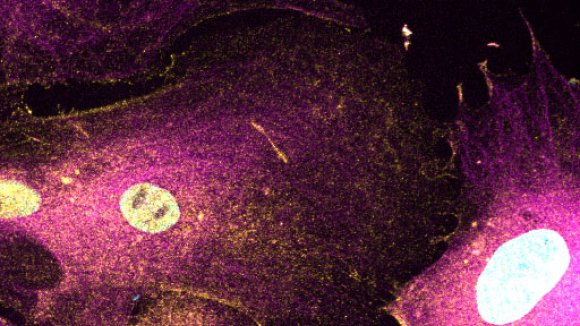
I would love to one day find a way to block the messages between the immune cells and the astrocytes. I think if we could do this, we could slow or even stop the ongoing inflammation in progressive MS.Dr Cory Willis
Starting something new
This is the research idea I wanted to explore, but I needed to find my own funding for it. So, I applied for a Catalyst grant with the MS Society. These are smaller, specialised grants to explore new ideas. They can help to quickly identify promising research.
When I found out I had received a Catalyst grant I was ecstatic! They’re ideal for early career researchers like me. We can investigate our independent research ideas in the beginning stages of our career in MS.
Why I’m researching MS
I’ve been aware of MS since I was young enough to remember. One of my mom’s close friends lived with MS. And as I grew older I gained more insights into her experiences and the impact MS can have. This left me with a lasting impression of the true costs to the individual this condition leaves.
During my PhD in the U.S., I researched how myelin repair occurs in the brain and how to promote it. Myelin is the protective coating around nerves and is damaged in MS. So finding ways to repair it could keep nerves working properly. My supervisor was involved in outreach, from inviting individuals with MS to our lab to discuss our research, to speaking to members of congress about healthcare issues.
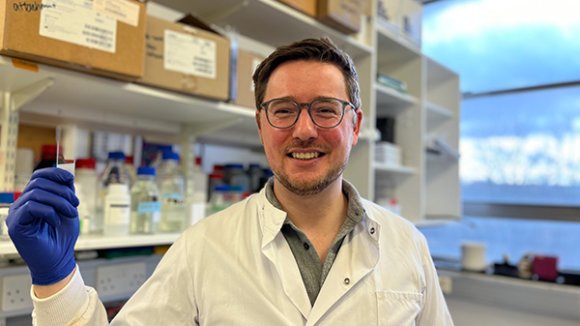
These experiences have continued to push me to make an impact, no matter how big or small, for people living with MS.Dr Cory Willis
Leading to big things
The preliminary findings so far are promising and hint at an important role of a particular message receiver. It’s called SUCNR1 and is found on astrocytes - this is a very exciting finding!
There’s a lot more research I’ll need to do next. Now I want to further investigate SUCNR1 and how it’s linked to the mechanisms underlying progressive MS.
As researchers, we wouldn’t be able to pursue our ideas without your generous donations. And this goes beyond the money donated. I know there are countless volunteers, carers, and people with MS that contribute to the continued success. So I’m extremely grateful to all supporters of the MS Society.


